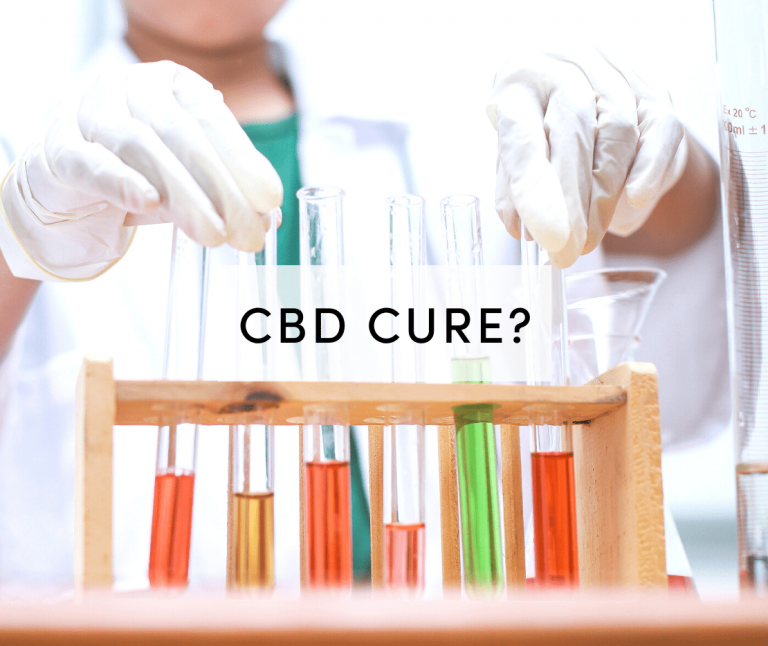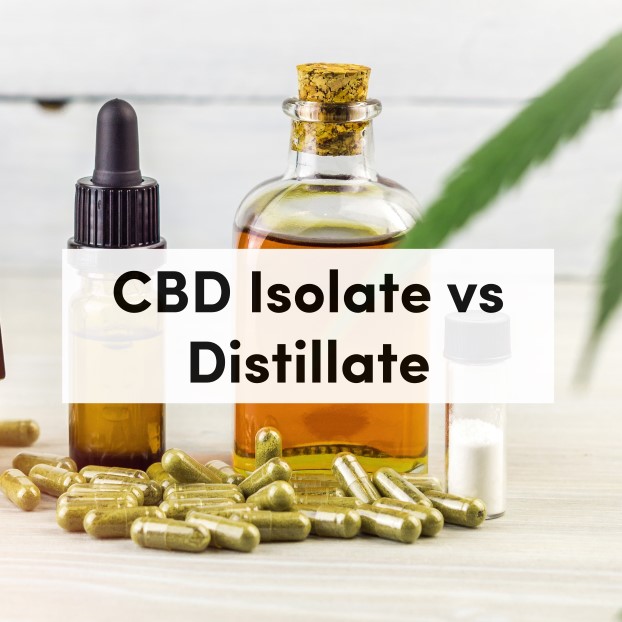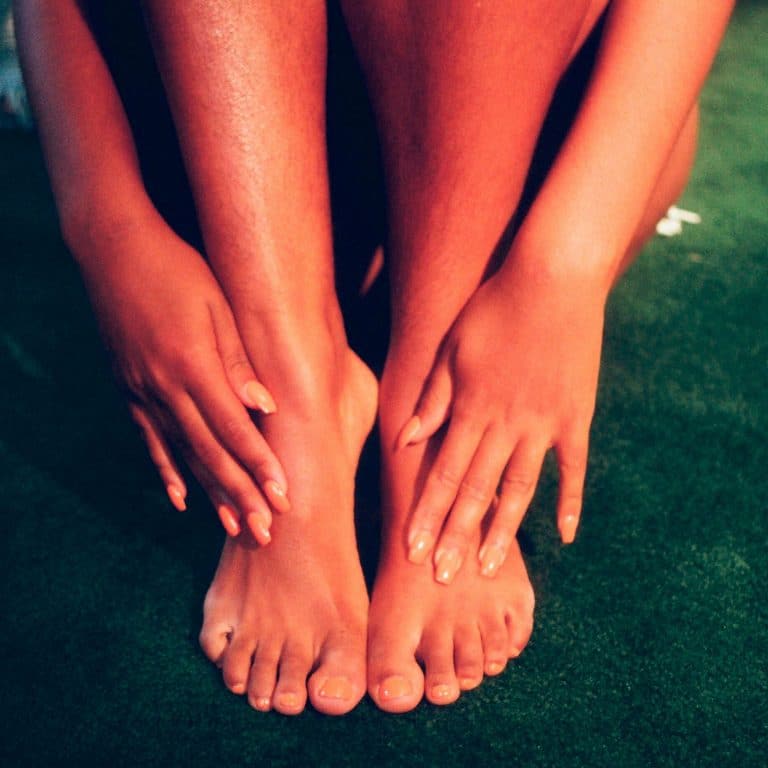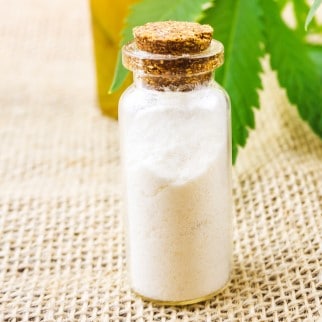Does CBD Cure Things?

Posted on May 12th, 2021
Many people are now turning to CBD products to alleviate certain conditions, and stores are increasingly stocking these products on their shelves. With the 2018 Farm Bill and the continued drumming for legal marijuana, it’s clear that CBD will continue its wellness relevance. Among the cannabinoids in the cannabis plant, CBD has proven to be potent in managing some conditions. With the popularity of this cannabinoid, new users are eager to know whether it can actually cure health conditions. In this article, we discuss how the cannabinoid works in the body and some of the health conditions that it may help you with. Can CBD cure health problems? Read on to find out more.
What are Cannabinoids?
Cannabinoids are naturally occurring compounds in the cannabis plant and in the human body (endocannabinoids). There are said to be over 100 cannabinoids in the cannabis plant, with THC and CBD being the most popular. Collectively, cannabinoids are chemical compounds that bind with cannabinoid receptors in the body. Even the ones our body makes have an effect similar to that of the cannabis plant.
Generally, cannabinoids can fall into three groups: endocannabinoids, phytocannabinoids, and synthetic cannabinoids. Endocannabinoids refer to those that exist naturally in the body’s endocannabinoid system. Phytocannabinoids are those that occur in the hemp and marijuana plants. These are used for medicinal or recreational purposes to supplement endocannabinoids. Synthetic cannabinoids are made in a laboratory and can also be used for medicinal or recreational purposes.
 What is CBD?
What is CBD?
CBD, which is short for cannabidiol, is one of the many naturally occurring cannabinoids in the cannabis plant. Besides THC, it is by far the most popular cannabinoid due to its potential health benefits.
Effects of CBD
CBD is not intoxicating like THC, and most of its effects to users appear to be positive. Its properties make it the ideal cannabinoid for possible therapeutic use. CBD may therefore good for the treatment of some forms of epilepsy, anxiety, stress, depression, and pain. But can CBD cure these ailments? We will discuss that momentarily. While CBD is mostly therapeutic, some users report mild side effects after using CBD products, including:
- Low blood pressure
- Dry mouth
- Drowsiness
- Lightheadedness
- Diarrhea
- Fatigue
How Does CBD Work?
Some cannabinoids bind with cannabinoid receptors in the endocannabinoid system. However, CBD works in the body by modulating neurotransmitters. The endocannabinoid system refers to a complex biological system in the human body that impacts various processes like sleep, memory, mood, appetite, and others. Any CBD cure that may exist would have to begin with the ECS.
The endocannabinoid system is made up of three components: endocannabinoids, receptors, and enzymes. These components function normally even without a phytocannabinoid or a synthetic cannabinoid in the body. The receptors in the endocannabinoid system are of two types: CB1 and CB2. CB1 receptors are mainly in the central nervous system and primarily govern movement, coordination, appetite, pain, mood, memory, and other body functions. CB2 receptors are mainly in the peripheral nervous system, and mainly influence pain and inflammation.
Research has established that CBD doesn’t attach to the receptors. The enzymes in the endocannabinoid system break down cannabinoids, which then triggers the endocannabinoids to bind with receptors. Activating these receptors is what results in the benefits that people associate CBD with.
CBD also works by influencing non-cannabinoid receptors. Particularly, it modulates the 5-HT serotonin receptor, which may result in the alleviation of psychotic disorders. CBD can also modulate the TRPV1 receptor, which is responsible for pain and inflammation.
Where CBD Comes From
CBD and other cannabinoids present in the cannabis plant occur in the plant’s resin glands, buds, leaves and stalks. CBD begins in the cannabis plant as an inactive acidic form. Cannabidiolic acid (CBDA) converts into CBD through the process of decarboxylation, or when the plant material is exposed to heat.
Will CBD Get You High?
CBD is not a psychotropic cannabinoid, meaning that using it won’t result in a “high” or euphoria like THC. Though THC has its own benefits, many people prefer not to experience the discomfort that can come from using it. Also, even at extremely high doses, there are no life-threatening side effects from CBD. As such, the scientific world considers CBD safe to use.
Can CBD Cure Things?
The big question among individuals who wish to try CBD for the first time is whether it cures any disease or health condition. To date, CBD hasn’t been established as a literal cure for any disease. Instead, it is used by many to manage various conditions. Some common things CBD may help with include pain and inflammation, anxiety and depression, acne, seizures, nausea, and heart conditions.
Mainly CBD manages these conditions by influencing the activity of CB1 and CB2 receptors in the cannabinoid system, as well as non-cannabinoid receptors. This affects the release or inhibition of neurotransmitters in the body, which results in the alleviation of these conditions.
Does CBD Cure Acne?
Acne is a common skin condition that develops when sebum and dead skin cells clog the pores. Bacteria build-up can further trigger inflammation, leading to more severe acne. While CBD can’t cure acne, it has been found to manage it very well for some individuals. Particularly, CBD influences the way the body creates sebum. Research carried out in 2014 showed that CBD prevents the sebocytes (cells that create sebum) from creating too much of it.
CBD also helps manage acne by initiating an anti-inflammatory reaction in the skin cells and preventing the activation of inflammatory cytokines. Cytokines have been found to trigger acne, and reducing them may help prevent severe acne. CBD also has anti-bacterial and anti-fungal properties, which means that it can help prevent or reduce infections from pollutants and dirt on the skin, which is another cause of acne.
Does CBD Cure Anxiety and Depression?
While CBD may not necessarily cure anxiety and depression, it may help manage these conditions by modulating the neurotransmitter serotonin. This neurotransmitter plays a vital role in mental health. Anxiety and depression usually come with low serotonin levels in the body. The conventional way of dealing with these conditions is by using selective serotonin reuptake inhibitors (SSRI).
Studies have found CBD to have a similar effect as SSRI drugs in the body. This means that CBD inhibits the reuptake of the serotonin, keeping the levels of the neurotransmitter in circulation moderate or high. In fact, some CBD proponents say they manage anxiety and depression using this cannabinoid instead of an SSRI. But you should never stop taking your prescribed medications without the approval of your doctor.
 Chronic Pain
Chronic Pain
CBD may also manage various forms of pain, including chronic pain. Mainly, it works by influencing the activity of CB2 receptors, which are the receptors that play a role in pain and inflammation. Cannabidiol also manages chronic pain by stimulating the reuptake of adenosine, a neurotransmitter that plays a vital role in blocking pain signals. The reuptake of this neurotransmitter boosts its levels in the brain, which facilitates the blocking of pain sensation. Another way CBD helps manage chronic pain is by modulating the TRPV1 receptor, which is responsible for pain and inflammation.
Does CBD Cure Seizures?
CBD may not cure seizures, but it is used to manage various types of seizures. Particularly, CBD is known to modulate CB1 receptors, which are mainly in the central nervous system. Such modulation can be preventive against various neurological disorders, including epilepsy and seizures.
In fact, CBD is the active ingredient in Epidiolex, a drug that the FDA has approved for treating epilepsy. This drug has proven effective at treating individuals with Lennox-Gastaut syndrome and Dravet syndrome, which are forms of epilepsy.
Does CBD Cure Nausea?
CBD can also be effective in alleviating nausea. For example, cancer patients find it useful in lessening the side effects of chemotherapy treatment like nausea and vomiting.
This cannabinoid may help quell nausea because it modulates serotonin. This neurotransmitter influences an individual’s general well-being and their mood. By influencing the levels of serotonin in the brain and body, CBD helps greatly in reducing nausea.
Conclusion
Cannabidiol is one of the many cannabinoids that naturally occur in the cannabis plant. CBD is largely non-psychoactive, meaning that using this cannabidiol doesn’t get you high. Other properties of CBD, like anti-inflammatory, antioxidant, and anti-bacterial properties have made the compound very popular.
While you can’t call CBD a conventional cure for diseases, many people have found it useful in managing certain health conditions. Particularly, people use CBD to manage various forms of pain, acne, anxiety, epilepsy, and the side effects of chemotherapy (nausea and vomiting). Maybe someday a true CBD cure will emerge.






